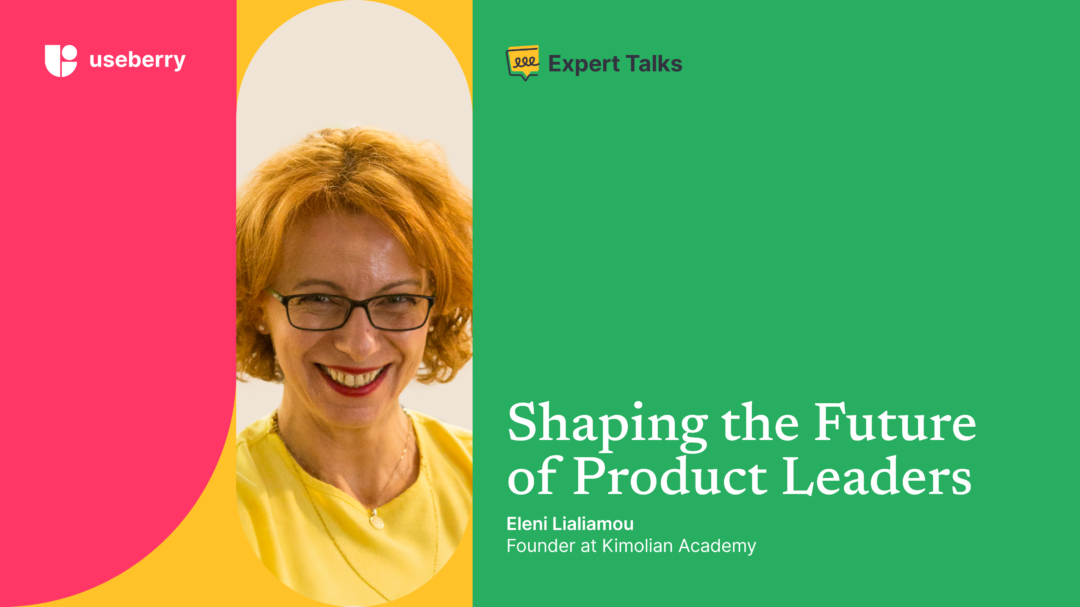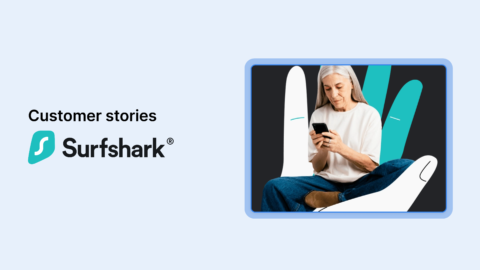Welcome to another inspiring edition of Expert Talks!
Today, we’re excited to feature Eleni Lialiamou, the founder of Kimolian Academy. Eleni shares her journey in tech and how she created an academy that empowers women to become successful product leaders. In this article, she discusses the challenges of launching an academy in the tech industry, the importance of mentorship, and how tools like Useberry help shape the future of product leadership.
Let’s explore Eleni’s vision!
Kimolian Academy Journey: Inspiration and Key Challenges
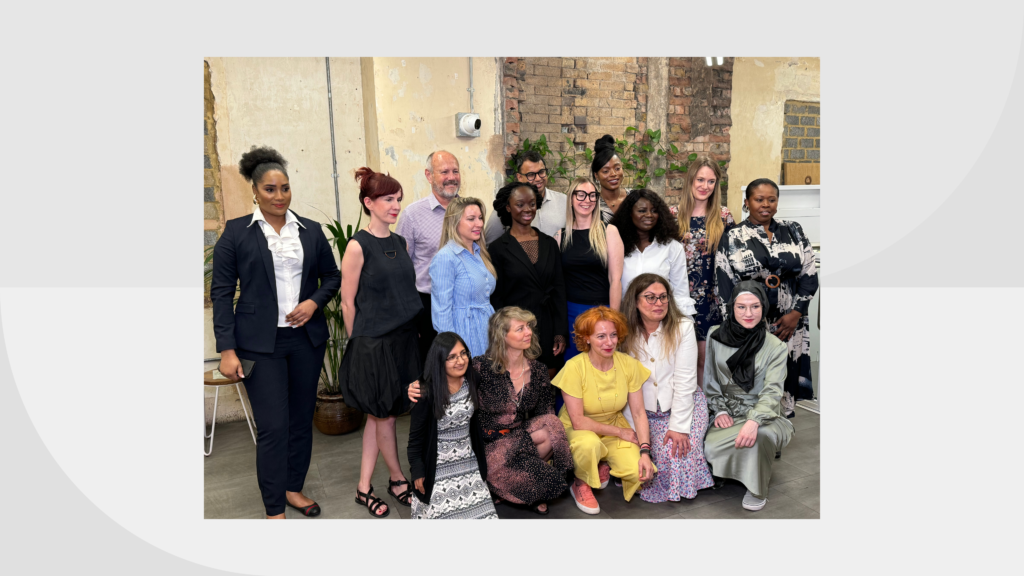
What inspired you to start Kimolian Academy, and how has your journey as a Product Lead shaped the vision for it?
I started Kimolian Academy because I believe in empowering women to lead with purpose and confidence in tech. My experience as a Product Lead across different markets revealed a common gap – women lacked access to the right opportunities, tools, and networks to thrive in product management roles. Kimolian Academy was built to change that.
The academy fosters a unique cycle of growth where alumni return to mentor new cohorts, creating a thriving ecosystem of shared knowledge. Through hands-on learning, teamwork, and cross-cultural collaboration, participants develop the skills to excel in diverse, high-impact teams. Kimolian Academy stands out for its commitment to transforming careers and lives through community, collaboration, and purpose-driven education.
What challenges did you face in launching an academy focused on empowering women, in the tech industry?
One of the biggest challenges was addressing the confidence gap among women entering tech. Many women feel they need to be “perfectly qualified” before stepping into product roles. This mindset had to change.
Another challenge was ensuring our curriculum stayed relevant. With AI reshaping the way products are built, we needed to teach women not just the fundamentals but also how to embrace AI-powered tools to innovate faster and smarter. Lastly, building a network of partners who believe in our mission was essential, and partnerships like the one with the Digital Skills Academy have been key to our success.
As a coach, what skills or mindsets do you believe are most critical for aspiring product leaders today?
Aspiring product leaders need curiosity, empathy, and adaptability. Curiosity helps you explore possibilities, empathy ensures your solutions address real user needs, and adaptability allows you to thrive in an ever-changing landscape.
In addition, embracing AI capabilities is now essential. AI is transforming how we build products, and understanding how to leverage AI tools for faster prototyping and better decision-making is a critical skill. Leaders who focus on testing assumptions early and often—using both qualitative and quantitative insights—will make better decisions and avoid wasting time and resources.
Relationship with Useberry
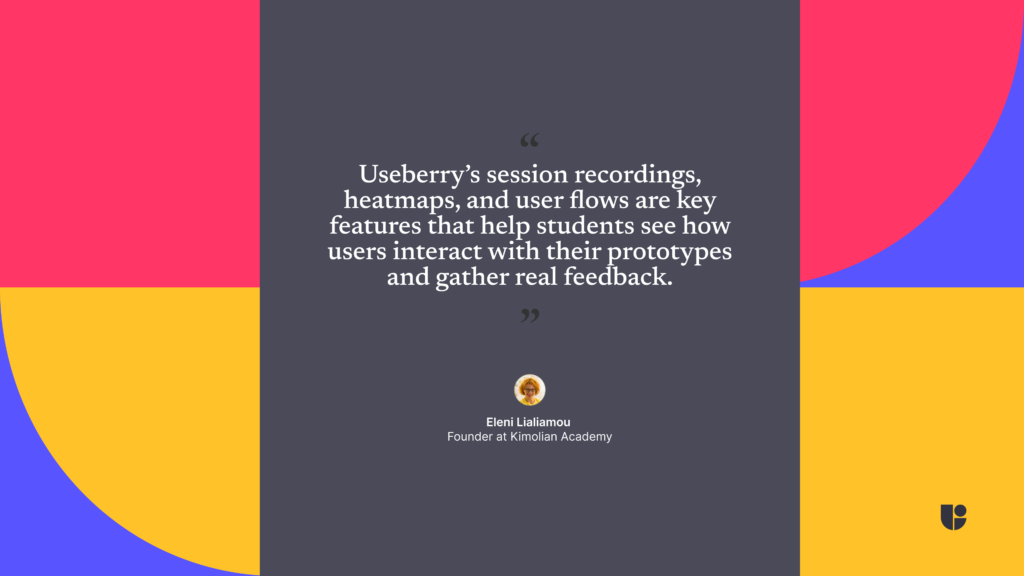
In what ways has Useberry empowered your students during their learning journeys? Can you share a specific project or experience where it made a significant impact?
Useberry has been an incredible enabler for our students, helping them bring their ideas to life quickly and test key assumptions. For example, one of our students worked on a prototype for an app to help women prepare for job interviews. By using Useberry, she tested her ideas with real users, collected both qualitative and quantitative feedback, and iterated on the design—all without needing a fully built product.
The result was a solution that not only met user needs but also gave her the confidence to present her work to potential employers.
Are there any particular Useberry features or tools that have become essential for your students?
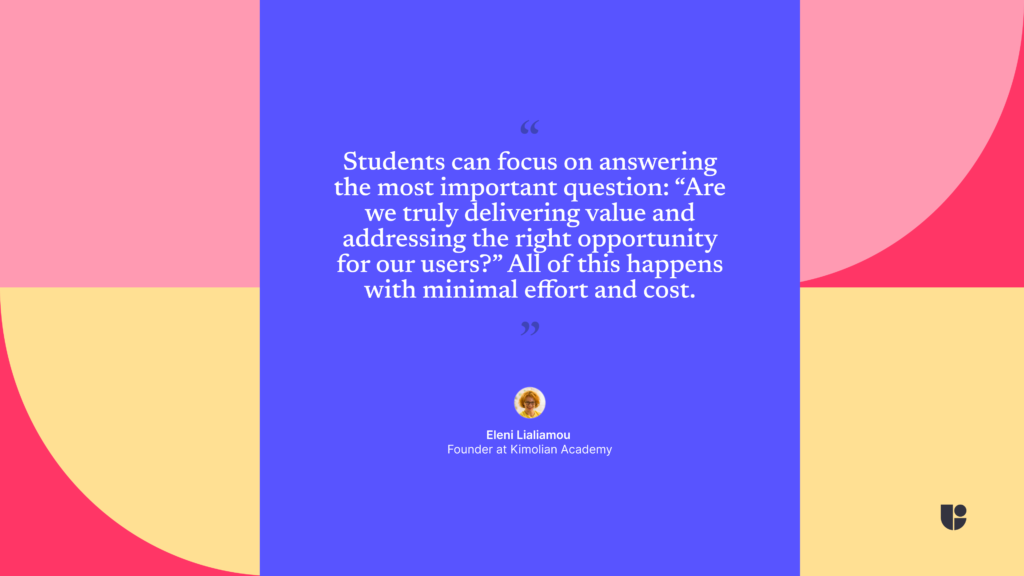
Single Task and Open Analytics testing are incredibly useful for our students. Useberry’s session recordings, heatmaps, and user flows are key features that help students see how users interact with their prototypes and gather real feedback. These tools make it easy to identify what works and what doesn’t early on.
What makes Useberry even better is how it integrates with AI-powered tools. This combination speeds up the process of testing early prototypes and makes it more efficient. Students can focus on answering the most important question: “Are we truly delivering value and addressing the right opportunity for our users?” All of this happens with minimal effort and cost.
As a product leader and coach, how do you see Useberry integrating into product design workflows?
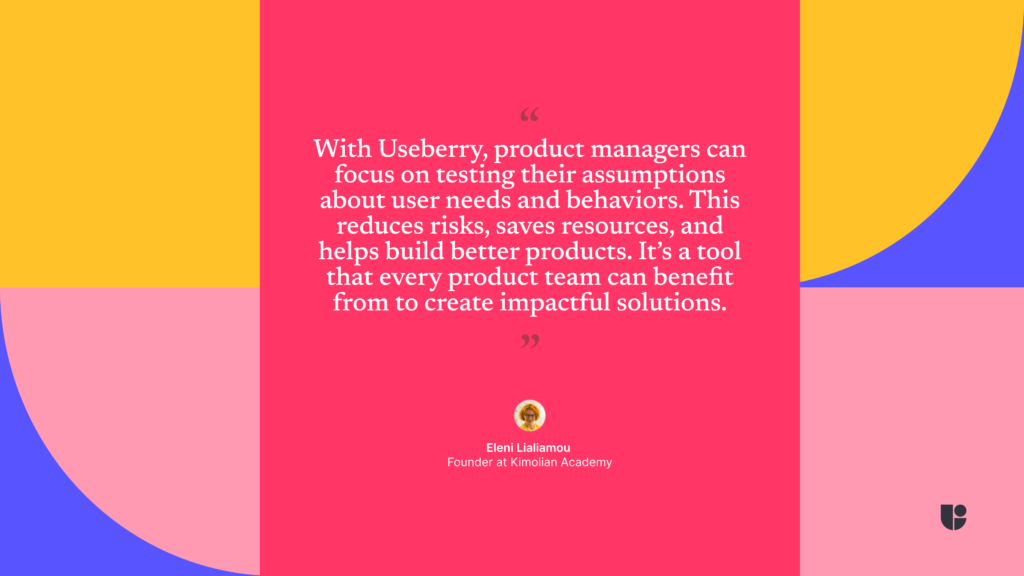
Useberry fits perfectly into modern product development workflows. It’s ideal for testing concepts and getting early feedback on usability and value. With AI tools making prototyping faster, Useberry lets teams quickly test and refine their ideas before moving to larger-scale solutions.
By using Useberry, product managers can focus on testing their assumptions about user needs and behaviors. This reduces risks, saves resources, and helps build better products. It’s a tool that every product team can benefit from to create impactful solutions.
The Future of Product Design

What emerging trends in product design and UX research are you most excited about?
AI is changing product design in amazing ways. It’s making prototyping faster and allowing teams to personalize experiences better. What excites me most is how AI-powered tools are opening up opportunities for smaller teams to test big ideas with fewer resources.
Early testing of assumptions is also becoming more important, especially when building AI-powered products. These products often require a lot of effort, data, and resources. Testing early helps teams avoid unnecessary work and focus on addressing the right opportunity. With AI tools to create prototypes and Useberry to gather feedback, teams can make smart decisions quickly and efficiently.
This is an exciting time for product managers. AI is changing how we build, test, and improve, making it easier to deliver real value to users.
How do you think educational institutions and tools like Useberry can better prepare the next generation of UX researchers and product designers?
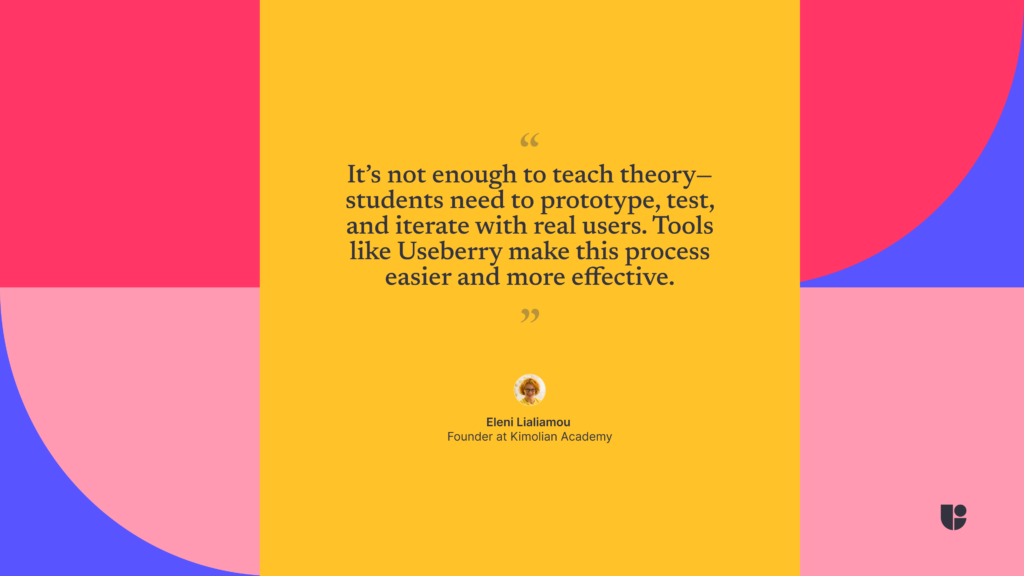
To prepare the next generation, schools and tools like Useberry need to focus on practical, hands-on learning. It’s not enough to teach theory—students need to prototype, test, and iterate with real users. Tools like Useberry make this process easier and more effective.
Simulating the full product development workflow—from idea to launch—helps students learn what it’s really like to work on a product team. Adding mentorship from industry leaders gives students a clearer path from learning to building meaningful careers.
What do you see as the biggest challenges for product leaders in the coming years?
The biggest challenge is keeping up with the rapid pace of change while staying focused on understanding and addressing real user needs. AI-powered tools are becoming essential for product leaders—not to replace critical thinking but to enhance it. These tools help us ask better questions, uncover patterns, and make data-driven decisions. In many ways, they act like virtual teammates, enabling us to work smarter and faster.
At the same time, it’s crucial to remain empathetic to users, curious about finding solutions, and open to learning at every stage of the product development journey . We are still building products for humans and collaborating with humans on our teams, which is incredibly encouraging.
Another significant challenge is ensuring that the products we create are ethical and inclusive. As we develop increasingly powerful tools, we must carefully consider their impact and take steps to avoid harm. Finally, leading diverse teams in a rapidly evolving landscape will require strong communication and leadership skills to foster collaboration and innovation.
Fun Roundup

What’s one unconventional piece of advice you give to your students that always seems to resonate?
“Prototype like your idea depends on it—because it does.” I always encourage students to test their assumptions early and often. Prototyping is no longer a luxury; it’s an essential step in ensuring you’re building the right thing. With tools like Useberry, it’s easier than ever to gather actionable feedback without wasting resources.
Could you share your best knowledge sources that have impacted your approach to product coaching?
My approach is shaped largely by real-world experiences—both successes and, more importantly, the moments that didn’t go as planned. Reflecting on why things didn’t work, discussing those situations, and researching what could have been done differently have been invaluable. Over the years, working with cross-functional product teams, I’ve seen many common pitfalls. These lessons are what I bring into our training programs: insights on what we would have done differently.
Books like “Inspired” by Marty Cagan and “Continuous Discovery Habits” by Teressa Torres have been incredibly helpful in grounding these lessons in proven frameworks. I also find constant inspiration from the success stories within Kimolian Academy—our students and their journeys remind me to keep exploring what’s possible and sharing those insights with others.
Conclusion
Eleni’s story highlights the importance of empowering women in tech by giving them the right opportunities, support and tools. At Useberry, we share this mission by helping UX researchers and designers work more efficiently, collaborate better, and get the insights they need to make confident decisions.
Feel free to contact us!
We’d love to know your experience with Useberry and we will be excited to hear your thoughts and ideas.


